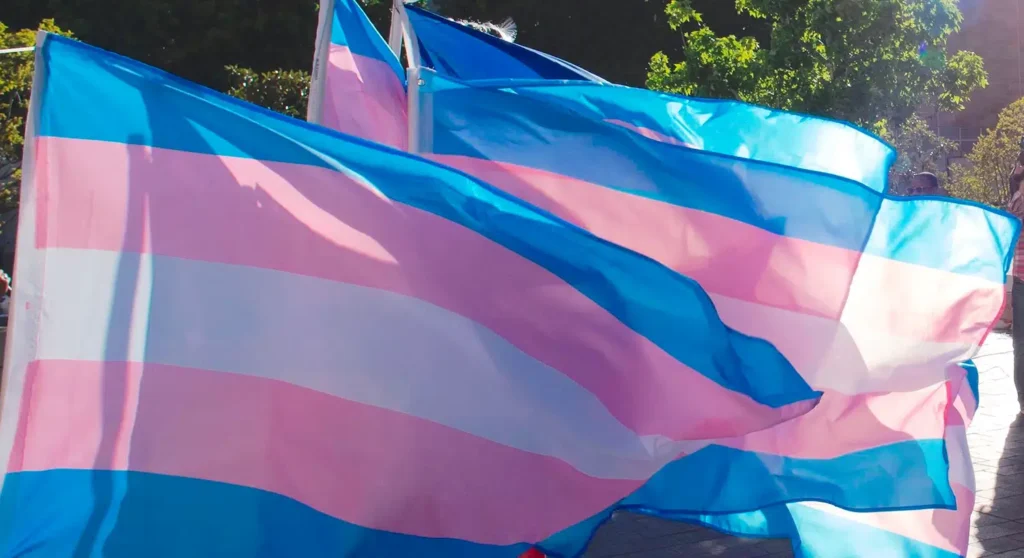Introduction:
In recent years, there has been a growing awareness of the diverse experiences of transgender individuals and the unique challenges they face, including those related to vocal identity and expression. For many transgender individuals, Hormone Replacement Therapy (HRT) plays a significant role in their transition journey, affecting not only their physical appearance but also their vocal characteristics and abilities. In this comprehensive guide, we will explore the implications of HRT on trans voices in singing, examining how hormone therapy can impact vocal range, resonance, and control. We will also discuss strategies for vocal exercise and technique that can help transgender singers navigate these changes and achieve vocal health, artistic expression, and empowerment.

Understanding HRT and Effects on the Voice:
a. Overview of HRT:
Hormone Replacement Therapy (HRT) is a medical treatment commonly used by transgender individuals to align their physical characteristics with their gender identity. HRT involves the administration of hormones, such as estrogen or testosterone, to induce physical changes such as breast development, fat redistribution, and voice modulation.
b. Effects of HRT on the Voice:
Hormone therapy can have significant effects on vocal characteristics, particularly in transgender individuals undergoing masculinizing hormone regimens. Testosterone therapy, commonly used by transgender men (AFAB), can lower the voice pitch, increase vocal resonance, and promote vocal fold thickening, resulting in a deeper, more resonant voice. Estrogen therapy, typically used by transgender women (AMAB), can have the opposite effect, to a lesser degree, leading to a reduction in vocal fold mass, thinning of the vocal cords, and changes in pitch, resonance, and timbre.
c. Individual Variability:
It’s essential to recognize that the effects of HRT on the voice can vary widely among transgender individuals, depending on factors such as genetics, age, hormone dosage, and duration of hormone therapy. Some individuals may experience significant vocal changes with hormone treatment, while others may experience more subtle or gradual shifts in vocal characteristics.

Vocal Changes and Maintaining Vocal Health:
a. Vocal Exploration and Awareness:
For transgender individuals undergoing HRT, vocal exploration and self-awareness are crucial aspects of navigating vocal changes and maintaining vocal health. It’s essential for singers to listen to their voices attentively. Observe changes in pitch, resonance, and timbre, while adapting their vocal technique accordingly. Keeping a vocal journal or recording voice samples can help transgender singers track vocal changes over time. This can help identify areas for improvement.
b. Vocal Exercise and Warm-Up:
Engage in regular vocal exercise and warm-up routines. This can help transgender singers maintain vocal flexibility, strength, and endurance during hormone therapy. Vocal exercises such as lip trills, sirens, tongue. Focus on adequate hydration, proper vocal rest, and avoidance of vocal strain. These are critical for preserving vocal health while preventing vocal fatigue or injury. Transgender singers should also be mindful of factors that can affect vocal health negatively. These include things such as smoking, excessive alcohol consumption, dry climate, and environmental irritants.
C. Vocal Therapy and Coaching:
Work with a qualified vocal therapist or coach who specializes in transgender voice training. This will provide invaluable guidance and support for transgender singers. Vocal therapists can help transgender individuals navigate vocal changes during hormone therapy. Focus on develop healthy vocal habits, while exploring techniques for vocal feminization or masculinization. Vocal coaching sessions can focus on breath management, resonance adjustment, pitch modulation, diction, theory, and articulation. This helps transgender singers optimize their vocal performance and artistic expression.

Vocal Diversity and Artistic Expression:
a. Celebrating Vocal Diversity:
It’s essential to celebrate the diversity of transgender voices and embrace the unique qualities and characteristics that each individual brings to their singing. Transgender singers should be encouraged to explore and express their authentic voices, regardless of whether they align with traditional gender norms or expectations. Vocal diversity enriches the musical landscape and promotes inclusivity, acceptance, and empowerment within the singing community.
b. Artistic Expression and Identity:
For many transgender singers, vocal expression is not only a means of artistic communication but also a form of personal identity and empowerment. Singing allows transgender individuals to affirm their gender identity. Expressing their emotions and experiences, as well as connecting with others on a deeply personal and meaningful level. As artists and performers, transgender singers have the power to challenge stereotypes and break down barriers. We inspire change through our music and vocal expression.
c. Creating Inclusive Spaces:
Creating inclusive as well as supportive spaces for transgender singers is essential for fostering a sense of belonging, acceptance, and validation within the singing community. Music organizations, choirs, and performance venues should adopt inclusive policies and practices that affirm the gender identity and expression of transgender singers, such as using preferred names and pronouns, providing gender-neutral facilities, and offering resources for transgender voice training and support.

Vocal Feminization and Masculinization:
a. Vocal Feminization Techniques:
For transgender women (assigned male at birth) undergoing estrogen therapy and learning vocal feminization techniques can help achieve a more feminine speaking as well as singing voice. These techniques may include pitch raising exercises, resonance adjustment, breath control, and also articulation exercises designed to soften and feminize vocal characteristics.
b. Vocal Masculinization Techniques:
For transgender men (assigned female at birth) undergoing testosterone therapy, vocal masculinization techniques can help achieve a deeper, more resonant speaking as well as singing voice. These techniques may include pitch lowering exercises, resonance shaping, vocal fold thickening exercises, as well as breath support techniques designed to masculinize vocal characteristics.
c. Vocal Coaching and Therapy:
Working with a vocal coach or therapist who specializes in transgender voice training can also provide personalized guidance and support for vocal feminization or masculinization. Vocal coaches can help transgender individuals develop vocal techniques as well as exercises tailored to their specific goals and preferences, ensuring safe and effective vocal transformation.

Conclusion:
Hormone Replacement Therapy (HRT) can have significant effects on the voices of transgender individuals, impacting vocal range, resonance, as well as control. For transgender singers, navigating vocal changes during hormone therapy requires awareness, adaptability, and a commitment to vocal health, artistic expression, and empowerment. By engaging in vocal exploration, exercise, and therapy, transgender singers can embrace their authentic voices, celebrate vocal diversity, and achieve vocal feminization or masculinization while promoting inclusivity, acceptance, and empowerment within the singing community. As allies and advocates, we must work together to create inclusive and supportive spaces that affirm the voices and identities of transgender singers, ensuring that everyone has the opportunity to share their stories, connect with others, and make their voices heard in the world of music and beyond.
More About Our Vocal Coaches
We understand that transitioning is often difficult and undeniably stressful for many people. While Dysphoria affects everyone differently, having an affirming voice that feels right for you can be a major factor in managing dysphoria.
Our vocal coaches help you find your voice by:

Dependable
⸺ & ⸺
Diligent
Having an advanced contact and booking platform to be sure that Your Lessons Now is always there for you, and our admin staff will always be here to help.

Helpful
⸺ & ⸺
Human
Providing a human touch to your scheduling and inquiries, our vocal coaches and also our admin team will assist you every step of the way.

Loud
⸺ & ⸺
Proud
Understanding the importance of providing a judgment-free and empathetic and caring environment, since many of us are LGBTQIA+ ourselves.

Secure
⸺ & ⸺
Respected
Our vocal coaches have extensive training, experience, degrees, and awards to further ensure the best learning environment for our students.
Follow Us on Social Media